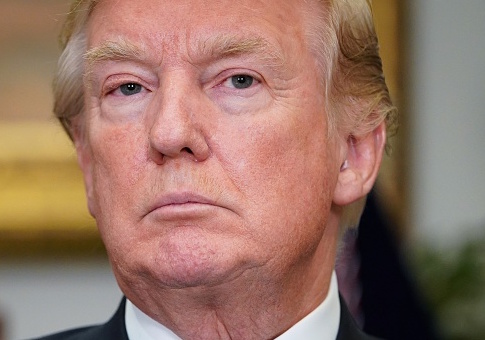The White House announced Tuesday that it had sent Congress a framework for overhauling prison and criminal reentry in America, following up on a promise first issued by President Donald Trump in his State of the Union address late last month.
While stressing the importance of reducing crime and enhancing public safety, the White House's framework is focused within those constraints on cutting recidivism and promoting better reentry. It called on Congress to reevaluate current reentry programs, implement evidence-based reentry programs, enhance risk assessment tools, expand access to prison work, and consider public-private partnerships in incarceration.
Such priorities highlight America's elevated rates of recidivism. According to the Bureau of Justice Statistics, 68 percent of state offenders are rearrested within three years and 77 percent are rearrested within five years. Three hundred thousand inmates released each year will return to prison within three years.
Prison reform has been a focus of the White House since last December, when Trump held a roundtable, which included pro-reform voices and two state governors, to discuss reentry and reducing recidivism. It then earned a mention in the State of the Union, with Trump promising to "embark on reforming our prisons, to help former inmates who have served their time get a second chance at life."
Conspicuously absent from the White House's actions is any move towards sentencing reform, which would affect the rates at which prisoners enter prison, rather than their experience when leaving it. A bill to implement both sentencing and prison reform recently cleared the Senate Judiciary Committee, over the objections of Attorney General Jeff Sessions and five of the committee's Republicans; it remains to be seen whether it will be allowed debate time on the floor of the Senate.
Although lacking a sentencing reform component, the White House's framework nonetheless met with the approval of advocates of overhauling the criminal justice system. David Barnes, policy director of pro-reform advocacy organization Generation Opportunity, emphasized that the administration's approach was, in his opinion, the right way forward on reform.
"The White House is taking a sensible approach to keeping our neighborhoods and communities safer while giving those who have served their time a second chance. Since the vast majority of inmates will eventually be released, it is in everyone's best interest to ensure that young Americans are better off after leaving prison than they were when they got in. We are pleased with the White House's leadership on this critical issue and look forward to working with this administration and Congress to make substantial reforms to our prison system," Barnes said.
Trump is expected to follow up the Tuesday announcement with the Wednesday signing of an executive order to elevate the Federal Interagency Reentry Council (FIRC) into the White House, from the Department of Justice where it currently exists.
The FIRC was initially established in 2011 as a focal point for interagency collaboration on the issue of reentry. Its reincorporation into the White House will be part of the administration's broader push on reentry.
